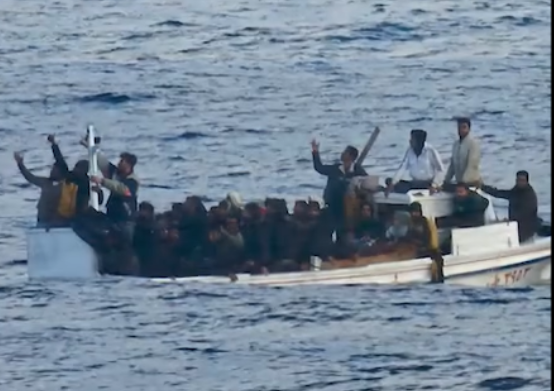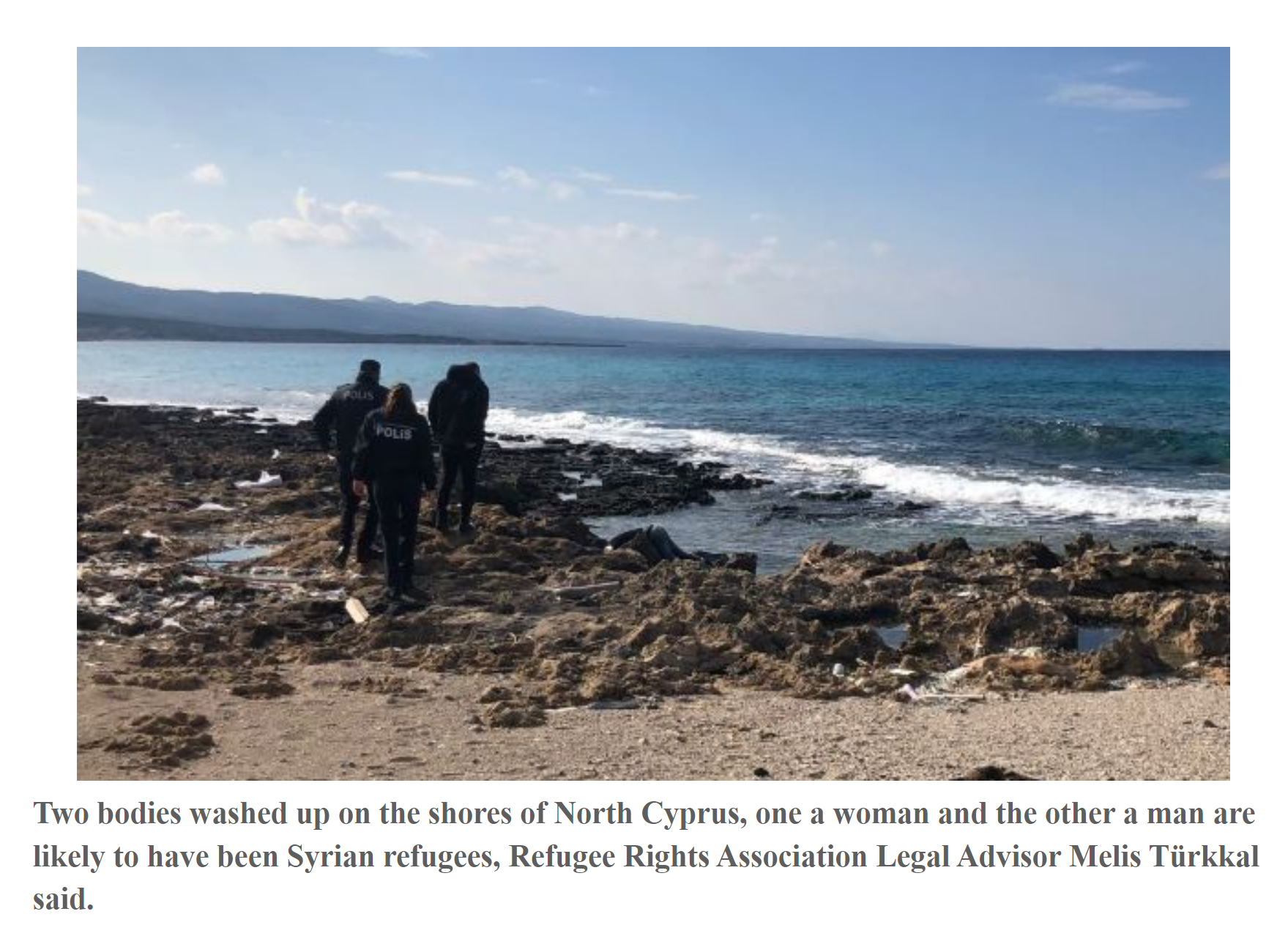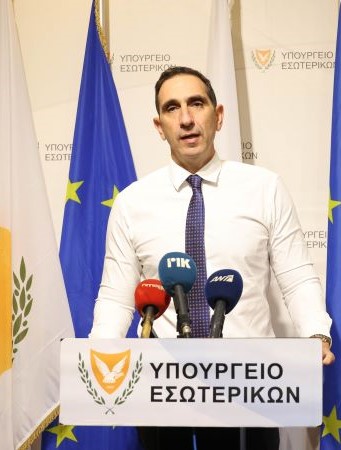On 25.01.2024, one of the three pre-school children who was hospitalised in the intensive care unit of Makarios Hospital died after being found in the morning of the previous day in a boat with 58 other Syrian refugees from the merchant ship “Folegandros”. The Search and Rescue Coordination Centre (KSED) after receiving information from the “Folegandros” proceeded with an operation to rescue and transport the refugees to Cyprus.
The refugees left Lebanon on the evening of 18 January and, while they were expected to arrive in Cyprus the following night, their traces disappeared. KISA, following an appeal from relatives of some of the refugees on the boat, informed the KSED on Saturday 20 January. Based on the information received so far, it appears that the boat’s engine had stopped during the journey, causing it to be washed away by the waves for days without steering.
In its initial announcement, the KSED failed to mention that it had been informed by KISA of the event since Saturday, 20.01.2024, while when asked about it by a radio station, its commander admitted that they had indeed been informed by KISA on 20.01 and that in order to locate the boat “a drone was used without success”.
It should be noted that last December, the KSED also failed to locate another boat it had been informed about, resulting in 85 other Syrian refugees still missing. The boat departed from Lebanon on 11.12.2023 and the KSED was informed on 17.12.2023 by Alarm Phone on the need to locate it. Unfortunately, the bodies of men and women recently found in a state of decomposition on the shores of Antalya and Rizokarpaso may possibly belong to this group.
KISA believes that based on what has been made public, not everything that could and should have been done for the timely identification and rescue of the refugees was done. From the above statements it does not appear that the search was started immediately and continued throughout the days, nor were all the technical means at their disposal for this purpose utilized. It therefore calls for an independent investigation into the reasons why the authorities were unable to locate this particular boat.
The Minister of Interior (MoI) Mr K. Ioannou, in his statement shortly after the location and rescue of the refugees but also later to the domestic press, made it clear that, instead of intensifying and strengthening the search and rescue framework and tools, as its obligations under international law, the government is seeking to:
- The setting up of a European Union border surveillance team for Lebanon in order to prevent refugees leaving from Lebanon to Cyprus
- To consider certain areas of Syria as safe so that it can deport Syrian refugees are already in Cyprus or who will come in the future back to Syria.
- To support Lebanon financially and technically in order to ensure that refugees do not leave its territory.
- Criminalisation and repression, under the guise of fighting traffickers, of solidarity networks and assisting refugees to move to Cyprus or another safe country.
KISA considers that the statements and proposals of the MoI violate Cyprus’ international treaty obligations for the search and rescue of shipwrecked persons as well as for access to the right to asylum and protection from refoulement to persons who have a well-founded fear of persecution in case of their return, either directly or indirectly, through other countries such as Lebanon, which then deports Syrians to Syria.
Finally, KISA considers that the statements of the MOI on combating trafficking networks as a measure for the protection of human life bypass rather than acknowledge reality and distract from the fact that Syrian refugees are actually forced to enter rotten boats at the risk of their lives and their children for three main reasons:
- Lebanon offers neither protection nor decent living conditions.
- Cyprus and the other EU Member States, unlike the refugees from Ukraine, do not provide Syrian and other refugees with safe and legal channels of access to European territory.
- Cyprus does not allow family reunification for refugees with subsidiary protection status (more than 90% in Cyprus), which results in the vast majority of children and spouses/partners of these refugees in Cyprus have no option but to go through the rings and rotting ships to be able to reunite their families.
Steering Committee







